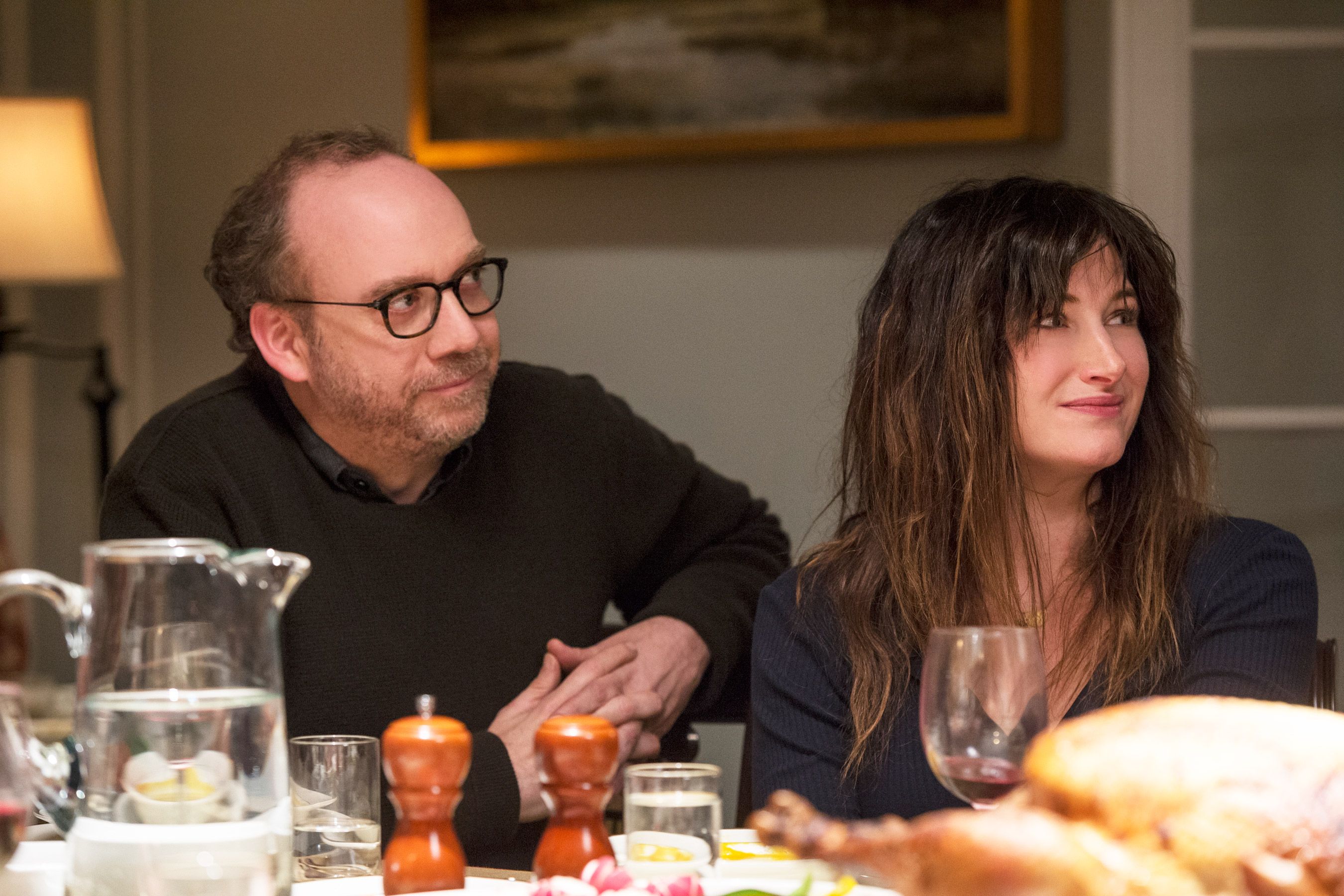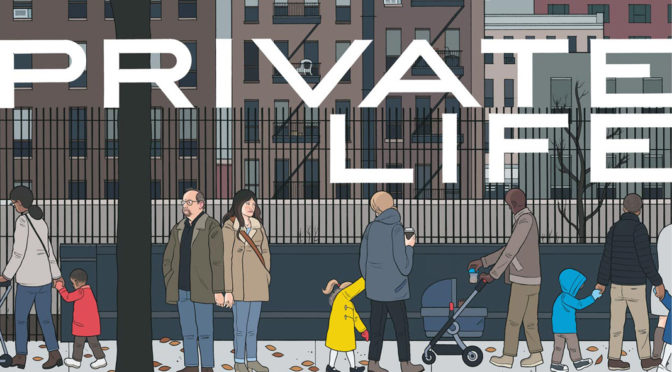After years of unsuccessfully trying different methods, a Manhattan couple in their late forties, Rachel (Kathryn Hahn; Bad Moms) and Richard (Paul Giamatti; Sideways), takes increasingly drastic steps to have a baby of their own. They simultaneously attempt in-vitro fertilization (IVF) and adoption in case either method fails. Writer and director Tamara Jenkins (The Savages) examines the process and the effect it has on their personal well-being, their marriage, and their extended families.
Jenkins contrasts how important the IVF process is to Rachel and Richard with how little it matters to those around them. Some of their friends and extended family treat it like a routine procedure without understanding the gravity of their situation. The medical staff at their hospital are the most grating. The nurses approach the process from a cold, clinical perspective and perform their tasks without sensitivity to the meaning it has for their patients and their main doctor has an inappropriate informality. He nonchalantly compares malfunctioning organs to soda machines and repeats the same corny anecdotes with each visit. These attitudes might seem comical at first but when compared to Rachel and Richard’s long history of attempting to have a child and what it means to them, it seems downright cruel.

As a couple pushed to their limits, Hahn and Giamatti portray weary characters. They have spent years attempting various fertilization procedures and adoption methods but to no results and the emotional toll is apparent. Each passing anniversary or nearby family is another reminder that they still don’t have the life they want. Their failure to conceive creates feelings of inadequacy and regret, especially in Rachel. She feels partly to blame for her predicament. Both Rachel and Richard are successful artists that prioritized their career and, in Rachel’s case, she repeatedly chose to delay having kids in favor of completing other career milestones like finishing a play or book. Hahn and Giamatti show the desperation of a wife and husband exhausted from their efforts. Giamatti, known for his bombastic acting, is subdued here with the gray in his beard and drained expressions showing his lack of energy. Hahn’s performances shows more determination but also more frustration. Her Rachel is fed up with the lack of results and uses a short temper as a defense for the blame she expects to be placed on herself.
Ultimately, Private Life is about family in desperation. In order to pay for the expensive treatments, Rachel and Ricard are depleting their life savings and having to borrow large sums of money from Richard’s brother. They are on the brink of collapse and it has damaged themselves and their relationship as their journey to parenthood has consumed the last years of their lives. Every subsequent failure has deepened their suffering and they feel powerless to do anything about it as they find themselves at the mercy of doctors and adoption specialists. Jenkins has taken a sensitive, sympathetic look at the heartache that comes with failing to participate in a basic part of human existence and being unable to lead the life you so desperately desire.

4/5 stars.
